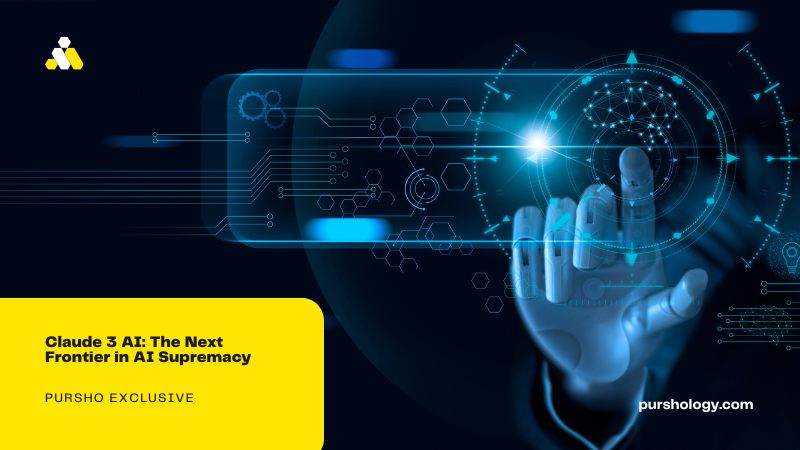In the relentless race to develop the most advanced artificial intelligence, Anthropic has unveiled its latest salvo: Claude 3 AI.
This powerful suite of AI models promises to redefine the boundaries of what is possible in the realm of machine intelligence useaifree.com, setting new benchmarks across a wide range of cognitive tasks.
At the forefront of this groundbreaking release is Claude 3 Opus, Anthropic’s most formidable model to date. According to the company’s claims, Opus outperforms industry titans like OpenAI’s GPT-4 and Google Gemini Ultra in a multitude of evaluation benchmarks, including undergraduate-level knowledge, graduate-level reasoning, mathematics, and coding proficiency.
Opus represents the pinnacle of Anthropic’s pursuit of artificial general intelligence (AGI), exhibiting near-human levels of comprehension and fluency in tackling complex prompts and scenarios.
Its capabilities extend beyond mere language processing, as Claude 3 marks Anthropic’s foray into multimodal AI, enabling the models to analyze and interpret images, charts, and other visual data alongside text.
However, Opus is not the only contender in the Claude 3 lineup. Anthropic has also introduced Claude 3 Sonnet and Claude 3 Haiku, offering a balance between intelligence, speed, and cost-effectiveness to cater to diverse use cases.
Claude 3 Sonnet: The Harmonious Blend of Capability and Efficiency
Positioned as the middle ground in the Claude 3 family, Sonnet boasts a remarkable combination of skills and speed. According to Anthropic, Sonnet is twice as fast as its predecessors, Claude 2 and Claude 2.1, while maintaining higher levels of intelligence.
This makes it an ideal choice for tasks that demand rapid responses, such as knowledge retrieval or sales automation.
Sonnet prowess extends beyond mere speed, as it also exhibits enhanced capabilities in areas like content creation, scientific queries, and coding.
Additionally, it demonstrates improved fluency in non-English languages, including Spanish, Japanese, and French, further expanding its potential applications.
Claude 3 Haiku: The Epitome of Compact Efficiency
At the other end of the spectrum lies Claude 3 Haiku, designed to be the fastest and most cost-effective model in its intelligence category.
Anthropic touts Haiku as the market’s speediest compact model, capable of processing dense research papers, complete with charts and graphs, in a mere three seconds.
While Haiku may not match the sheer cognitive might of Opus, its near-instant responsiveness and affordability make it an attractive option for applications that prioritize speed and efficiency over raw power.
Anthropic envisions Haiku as a valuable tool for tasks like real-time data extraction and analysis, where rapid processing is paramount.
The Quest for Responsible AI
Amidst the excitement surrounding Claude 3’s technical achievements, Anthropic remains steadfast in its commitment to developing AI systems that are not only intelligent but also safe and responsible.
The company emphasizes that the new models exhibit lower levels of hallucinations (incorrect information) compared to their predecessors and popular offerings from other providers.
Furthermore, Anthropic claims that Claude 3 models are better equipped to follow complex, multi-step instructions and adhere to brand voice guidelines here: logintutor.org, making them well-suited for customer-facing experiences that demand a high degree of trustworthiness.
The Road Ahead: Challenges and Opportunities
While the launch of Claude 3 represents a significant milestone in Anthropic’s journey, the company acknowledges that the path to true artificial general intelligence is fraught with challenges.
Concerns surrounding bias, privacy, and the potential misuse of AI technology remain at the forefront of public discourse.
Anthropic’s approach to addressing these issues lies in its commitment to “constitutional AI,” a framework that instills a set of values and principles into the models, ensuring they undertake actions that are politically and socially responsible.
As the AI landscape continues to evolve at a breakneck pace, the introduction of Claude 3 serves as a testament to Anthropic determination to push the boundaries of what is possible while navigating the ethical complexities that accompany such advancements.
In the coming months and years, the true impact of Claude 3 will be measured not only by its technical prowess but also by its ability to foster trust and collaboration between humans and machines, paving the way for a future where artificial intelligence is a force for good, empowering humanity to reach new heights of innovation and understanding.




